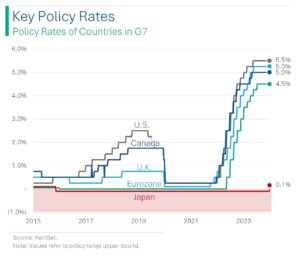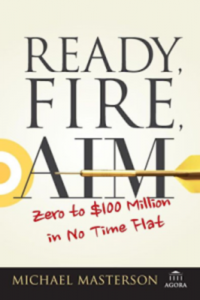
he Legal Tactics to Jail or Bankrupt Trump Before the Election Are Failing. What Can Anti-Trumpers Do Now to Keep Him from Running and Possibly Winning?
On March 4, as you know, the US Supreme Court ruled unanimously that the State of Colorado could not proceed with its effort to keep Colorado residents from voting for Trump by taking him off the ballot. This was a win for pro-democracy thinkers, but a painful blow to all who wanted him eliminated from America’s future by any means necessary.
According to the WSJ:
The Court struck down a Colorado Supreme Court ruling claiming that because Trump had engaged in “insurrection” on Jan. 6, 2021, he would not be allowed on the Colorado presidential ballot. The court set aside the question of whether Jan. 6 was an insurrection, and simply ruled that states cannot choose whether to disqualify candidates for federal office as insurrectionists.
The ruling was not a surprise to students of the Constitution because it was based on an interpretation of a clause that was so strained that even the “Liberal” justices couldn’t get behind it.
The NY Civil Fraud Case
As for the civil fraud case brought by NY Attorney General Letitia James and adjudicated summarily by Judge Arthur Engoron (both Democrats) against Trump (for supposedly overvaluing his collateralized properties’ bank loans), I’m 100% sure it will be reversed on appeal.
Like the Colorado ruling, it is so wrong on so many levels, including the facts that his valuations were actually understated, and that the banks, which were in theory the injured parties, made millions off the loans.
And there is another reason, which, though rarely discussed, tops them all. If NYC’s novel interpretation of the banking law were enforced, billion-dollar development projects (which are the driving force of real estate values in every city in America) would screech to a halt almost overnight.
The other cases against Trump are the Georgia “election interference” case, the federal Jan. 6 “insurrection” case, and the federal classified documents case. Taken all together, they accuse him of no fewer than 91 criminal offenses.
The Racketeering Case
The Georgia case is quickly falling apart in soap opera fashion before our eyes. Fani Willis, the prosecutor who became a national figure by bragging about her intent to put Trump in jail, has just narrowly survived a judgement that would have taken her off the case. But to stay on, she had to fire Nathan Wade, her married boyfriend and the lead prosecutor. And this, as the judge said in his ruling, will leave a bad “odor” on the case for the prosecution.
The Classified Documents Case
As for the classified documents case, it was a Hail Mary effort from the beginning, which became even less likely to cause Trump any damage as the very similar case against Biden was brought to light. Even if the government sanctions Trump for some piece of the complex of charges, it is inconceivable that it will inhibit his ability to continue as his party’s candidate or make a difference in the vote itself.
The Incitement to Insurrection Charge
That leaves what is, in my mind, the most absurd and unlikely case against Trump: that he incited the “insurrection” of Jan. 6.
First, the case will not succeed because the event was not, by any legal or reasonable definition, an insurrection.
Second, because the basis of the charge is a clear and purposeful misreading of the Constitutional amendment it is based on, which would almost certainly be seen as such by the Supreme Court.
Third, because Trump called for a “peaceful protest,” not an insurrection.
And finally, because it’s recently been documented that he explicitly called for the city’s Democratic leadership to protect the Capitol and its environs by ordering the National Guard to bring in ten thousand guardsmen to prevent rioting and violence. (A call that was inexplicably ignored.)
So, on my scorecard, the Democratic Party’s attempts to get rid of Trump through legal warfare looks to be a 4 out of 4 win for Trump.
What now?
What can the Anti-Trump Party, which currently represents about a third of American voters, do to defeat the Pro-Trump Party, which comprises a slightly larger number of voters?
What can the Anti-Trump Party do to keep the foul-mouthed, orange-haired, irrepressibly annoying former president from running in November and possibly becoming our next president?
It’s clear now that any further legal attacks won’t work.
Since the first indictment against Trump in April of last year, every poll I’ve found shows Trump’s support rising, while Biden’s numbers have edged downward.
(Averaging the data I’ve accumulated from a half-dozen of the most “respectable” polls, Trump’s support in April was about 45% and stands at 47% now. Biden’s promising 49% support in April is down to 42%.)
I was wrong.
If you’ve been reading this blog, you know that had I been running the Democratic Party, Biden would have by now given up his run for the 2024 election in favor of endorsing Gavin Newsom. In fact, I predicted it would happen sometime between Thanksgiving and the new year.
That didn’t happen. And since Biden managed to successfully read the teleprompter during his State of the Union address, it looks like – short of Biden getting seriously ill – Newsom is out and the Biden/Harris ticket is locked in.
Thus, American voters in November will be choosing between 78-year-old swaggering Donald Trump and 80-year-old lost-in-space Joe Biden.
So, who is going to win?
Most presidential elections since I was old enough to pay attention to them have been decided by fear, rather than hope or inspiration.
The 2016 election was, to a large extent, a contest between the fear of illegal immigrants versus the fear of deplorable American citizens. In that election, the fear of illegal immigrants was stronger.
The 2020 election was largely a contest between the fear of the Black Lives Matter movement and the fear of COVID. COVID won.
I see the 2024 election as a rhetorical contest between five fears: one that has already worked once, another that has failed once, a third fear about inflation, a fourth fear about culture, and a fifth that is too weak because nobody will believe it.
The Democrats seem to be betting all their chips on the one hard-to-believe accusation: that Trump will become a “tyrant” in his second term and put an end to US democracy.
The Republicans have four fears to stoke.
First, they will double down on stoking the fear of illegal immigration again – this time strengthened by the more than 8 million migrants that have crossed the border since Biden took office.
Second, they will argue that Biden’s social justice policies, supported by liberal judges and DAs around the country, are allowing the illegal immigrants and other law breakers to be released from jail without bail and get back to what they were arrested for: cleaning out retail stores, hijacking cars, and mugging and murdering law-abiding citizens.
Third, they will remind American voters of a fact that the Democrats can’t contradict: The economy is weaker now than it was when Biden took office.
And for the cherry on top, the Republicans will blame Biden for unleashing a new social culture of trangenderism, institutional racism, and White privilege that will destroy traditional American culture.
Again, if I were heading up the Democratic reelection campaign, I’d be looking very hard for several more ideas – ideas that are stronger than the fear of tyranny under Trump – if they want to win in November.












